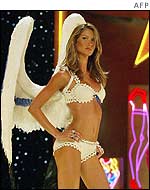The Money Culture
Posted on February 20th, 2007 in Uncategorized | 1 Comment »
I loved this Times piece about Yale investment manager David Swensen, who’s made a fortune for Yaleâover 21 years, his investments have average annual returns of about 16.3%âwithout making a fortune for himself. (He’s kicking Harvard’s ass, by the way.) Swensen takes home a salary of about a million bucks year, which is probably less than 1/100th of what he’d make at a hedge fund.
Why does he do it? Because he believes that a million dollars is still a lot of money, and he thinks there’s something socially valuable about the particular nature of his work.
âPeople think working for something other than the most money you could get is an odd concept, but it seems a perfectly natural concept to me,â says Mr. Swensen.
…A number of high-profile endowment chiefs have recently bolted academia for the more lush pay packages offered by private funds in the for-profit sector. When Jack R. Meyer, who racked up stellar returns as the head of the Harvard endowment, gave up his post in 2005, for example, he and his team easily raised $6 billion for their new hedge fund. But Mr. Swensen says he has no desire to do something similar.
âI just had an e-mail from a friend who manages money for a wealthy family,â he said in an interview in the endowmentâs plain campus office. âHe was troubled by it: making wealthy people wealthier. I feel privileged to be in a place where the resources that we generate are applied to the worldâs problems.â
Swensen spent some time in the IB world, but ultimately found the experience spiritually unsatisfying….
âIn the finance world it is very easy to measure winning and losing in dollars and cents,â he says. âThat has always seemed to be an inadequate measure. The quality of life is a better way to measure winning and losing. Money is only one element of that.â
In addition to helping Yale, Swensen has trained a number of money managers who share his public service spirit and have gone on to work at other universities such as MIT and Princeton.
I’m sure there are lots of people in the hedge fund world who give back as well. Nonetheless, I doubt there are many who’ve made so much money for a non-profit while making so relatively little for oneself. Swensen reminds us of the great power that economically-minded people can wield for the public good. I wish there were more like him.



